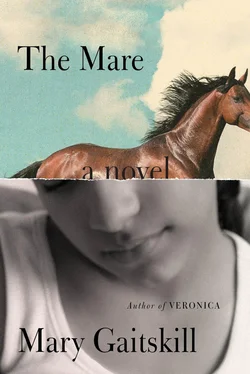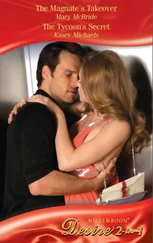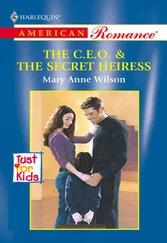My father sends Dante a dollar in a card for his birthday sometimes. Never me.
I put down the shell and picked up the sea horse. I never met my grandfather, but he loved me. He talked to me on the phone and when I sent him my picture, he said I was beautiful. He called me “mi niña.” He told me stories about how bad my mom was when she was little, and how she got punished. He sent the sea horse. He said one day my mom would bring me and Dante to visit and he would take us to the ocean. I remember his voice: tired and rough but mad fun inside. I never saw him and I almost never talked to him on the phone, but when I did, it was like arms around me. Then his voice started getting more tired and the fun was far away in him. He said, “I’m always gonna be with you. Just think of me, I’m there.” It scared me. I wanted to say, Grandpa, why are you talking like this? But I was too scared. “Even in your dreams,” he said. “I’m gonna be there.” I said, “Bendición, Abuelo,” and he answered, “Dios te bendiga.” A month later, he died.
I put my things back in the box. I looked down in the street. The raggedy man was gone. The gold outline on the building was gone too, spread out through the sky, making it shiny with invisible light. For some reason I thought of a TV commercial where a million butterflies burst out from some shampoo bottle or cereal box. I thought of Cookie’s face when he gave my brother a cookie. I thought of the big-legs lady in the booklet holding the fake orange flower, looking like she was hoping for someone to come have fun with her.
I met her when I was forty-seven, but I felt still young. I looked young too. This is probably because I had not done many of the things most people that age have done; I’d had no children and no successful career. I married late after stumbling through a series of crappy relationships and an intense half-life as an artist visible only in Lower Manhattan, the other half of my life being sloppily given over to alcohol and drugs.
I met my husband, Paul, in AA. I only went for about a year because I couldn’t stand the meetings, couldn’t stand the language, the dogma. They tried to make it sound like something else, but that’s finally what it was. Still, it helped me quit, no question. And I met Paul. It was six months before we even had coffee, but I immediately noticed his deep eyes, the animal eloquence of his hairy hands. He was fifty then, nearly ten years older than me, and still married, but living in the city separately from his wife. It made him nervous that I stopped coming to meetings, and though he’d never admit it, I think that tension gave our slow courtship a stronger charge. We eventually moved to a small town upstate, the same town he’d moved from, where he made a good living as a tenured professor at a small college. A lot of his income went to support his wife and daughter, and we lived in an old faculty housing unit long on charm and short on function. Not owning didn’t bother us though. We were comfortable, and for a long time we were happy with each other; we went out to eat a lot, and traveled in the summer.
When people asked me what I did I sometimes said, “I’m transitioning,” and very occasionally, “I’m a painter.” I was embarrassed to say the second thing even though it was true: I still painted, and it seemed like I was better than I was when I showed at a downtown gallery twenty years before. But I was embarrassed anyway because I knew I sounded foolish to people who had kids and jobs too, and who wouldn’t understand my life before I came here. There were a few — women who also painted at home — whom I was able to talk about it with, describe what art used to be to me, and what I wanted to make it be again: a place more real than anything in “real” life. A place I remember now just dimly, a place of deep joy where, when I could get to it, it was like tuning in to a radio frequency that was sacred to me. Regardless of anything else, nothing was more important than carrying that frequency on the dial of myself.
The problem was, other people created interference. It was hard for me to be close with them and to hear the signal at the same time. I realize that makes me sound strange. I am strange, more than the bare facts of my life would suggest. But I have slowly come to realize that so many people are strange, maybe the word is nearly meaningless when applied to human beings. Still, people interfered. And so I created ways to keep them at a distance, including my increasingly expensive habit. What I didn’t see, or allow myself to see, was that drugs created even more interference than people; they were a sinister signal all their own, one that enhanced and blended with, then finally blotted out, the original one. When that happened I got completely lost, and for many years I didn’t even know it.
By the time I got to AA, art had all but gone dead for me, and I credit my time in those stunned, bright-lit rooms for waking it up again.
When we finally moved out of the city, I began to feel the signal again, but differently. I felt it even when I was with Paul, which did not surprise me — he was not “other people.” But I began to feel it with other people too, or rather through them, in the density of families living in homes, going back for generations in this town. I would see women with babies in strollers or with their little children in the grocery store, and I would feel their rootedness in the place around us and beyond — in the grass and earth, trees and sky.
To feel so much through something I was not part of was of course lonely. I began to wonder if it had been a mistake not to have children, to wonder what would’ve happened if I’d met Paul when I was younger. The third time we had sex, he said, “I want to make you pregnant.” I must’ve had sex hundreds of times before, and men had said all kinds of things to me — but no one had ever said that. I never wanted anyone to say it; girlfriends would tell me a guy had said that and I would think, How obnoxious! But when Paul said it, I heard I love you. I felt the same; we made love and I pictured my belly swelling.
But I didn’t get pregnant. Instead my sister Melinda died. I know the two things don’t go together. But in my mind they do. My sister lived in Cleveland, Ohio. She had been sick a long time; she had so many things wrong with her that nobody wanted to think about her, including me. She was drunk and mean and crazy and would call saying fucked-up things in the middle of the night. When she was younger, she’d hung around with a sad-sack small-time biker gang, and now that she was falling off a cliff — my guess is they were too — they didn’t want to talk to her. I didn’t want to talk to her either, but I would, closing my eyes and forcing myself to listen. I would listen until I could remember the feeling of her and me as little girls, drawing pictures together, cuddled on the couch together, eating ice cream out of teacups. Sometimes I couldn’t listen, couldn’t remember; she’d talk and I’d check my e-mail and wait for her to go away. And then she did.
She had a stroke while she was taking a shower. The water was still running on her when they found her a few days later. It was summer and her body was waterlogged and swollen. Still, I could identify her, even with her thin, tiny mouth nearly lost in her cheeks and chin and her brows pulled into an inhuman expression.
Paul went with me to clear out her apartment. I hadn’t been to visit her for at least a decade — she always preferred to visit me or my mother, and I could see why. Her apartment was filthy, full of old take-out containers, used paper plates and plastic utensils, boxes and bags crammed with the junk she’d been meaning to take out for years. Months’ worth of unopened mail lay on every surface. There was black mold on the walls. Paul and I stood there in the middle of it and thought, Why didn’t we help her? The obvious answer was, we had helped her. We had sent her money; we had flown her out to visit on Christmas. I had talked to her, even when I didn’t want to. But standing in her apartment, I knew it hadn’t been enough. She’d known when I hadn’t wanted to talk, which was most of the time. Given that, what good was the money?
Читать дальше












